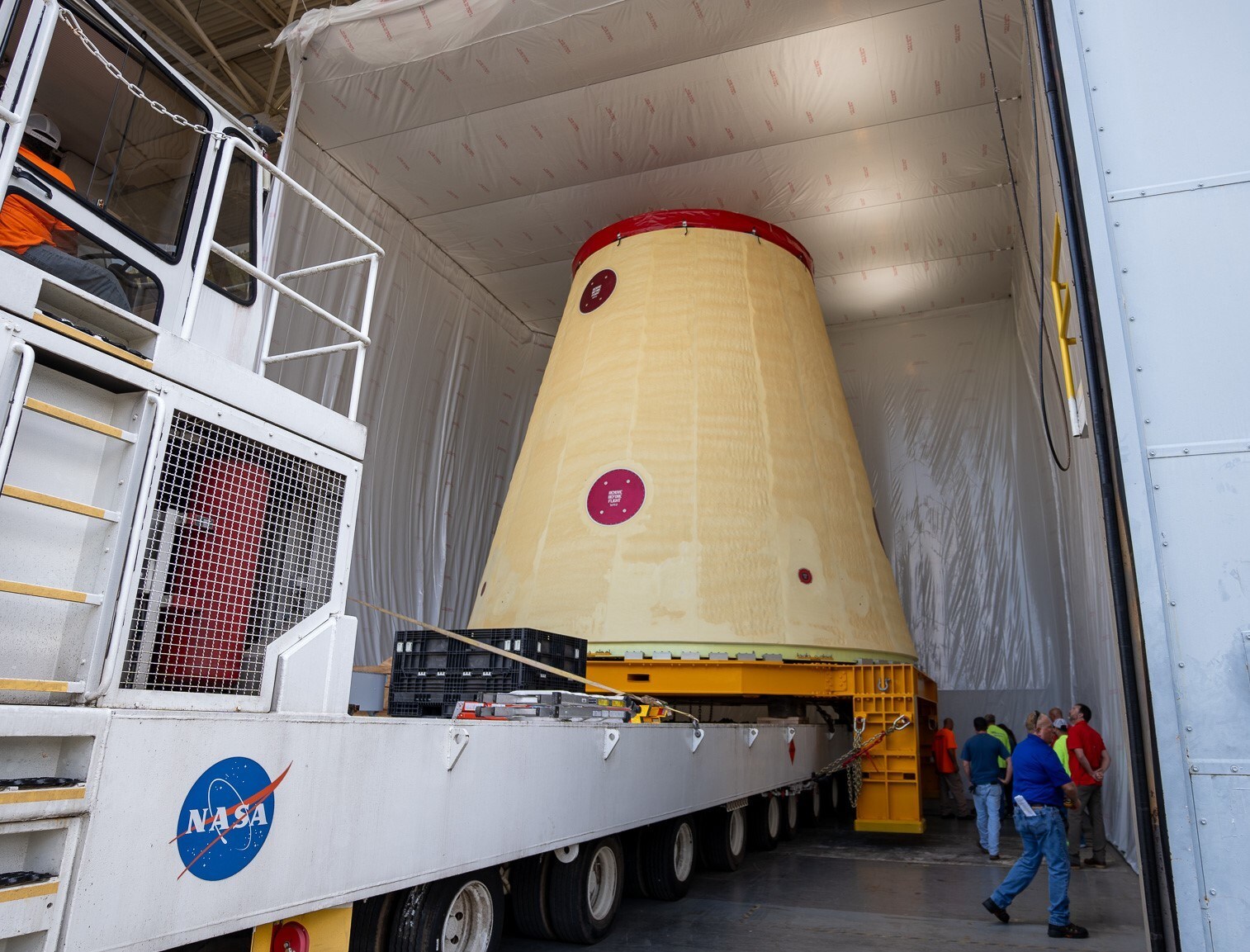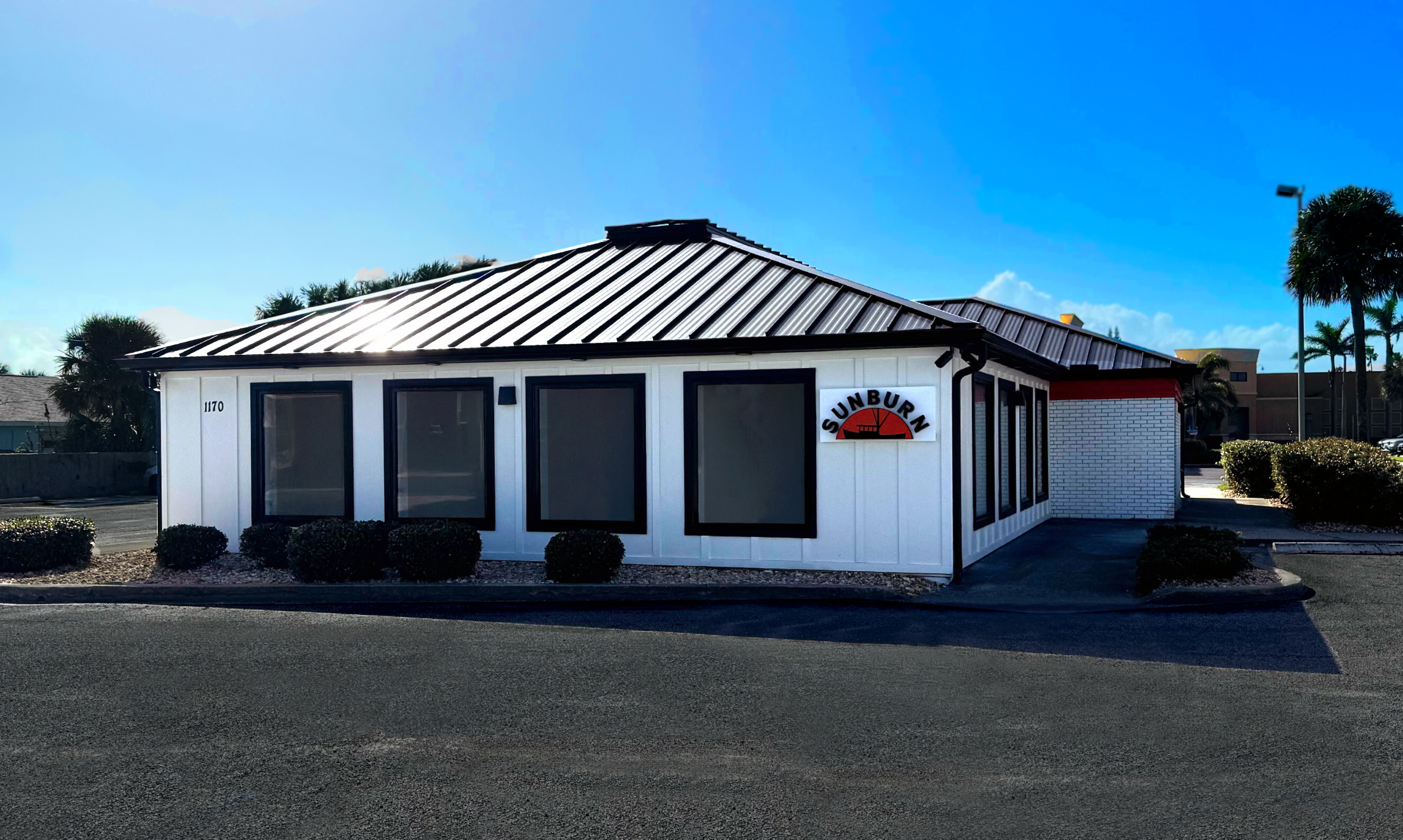WASHINGTON, Aug. 14, 2024 -- To mark progress toward the first crewed flight test around the Moon in more than 50 years for the benefit of humanity, NASA will welcome media Wednesday, Aug. 21, to see a key adapter for the agency's SLS (Space Launch System) rocket at its Marshall Space Flight Center in Huntsville, Alabama.
The cone-shaped launch vehicle stage adapter connects the rocket's core stage to the upper stage and helps protect the upper stage's engine that will help propel the Artemis II mission around the Moon. The event includes seeing the adapter on the move as it prepares for shipment to NASA's Kennedy Space Center in Florida.
Media will have the opportunity to capture images and video and speak to subject matter experts as crews move the adapter out of NASA Marshall's Building 4708 to the agency's Pegasus barge. The barge will ferry the adapter first to NASA's Michoud Assembly Facility, where it will pick up additional SLS hardware for future Artemis missions, and then travel to NASA Kennedy. In Florida, teams with NASA's Exploration Ground Systems will prepare the adapter for stacking and launch.
This event is open to U.S. media, who must RSVP by 5 p.m. CDT on Monday, Aug. 19, to Jonathan Deal at jonathan.e.deal@nasa.gov. Additional details about timing and other details for the event are forthcoming to registered media.
Manufactured by prime contractor Teledyne Brown Engineering and the Jacobs Space Exploration Group's ESSCA contract using NASA Marshall's self-reacting friction-stir robotic and vertical weld tools, the launch vehicle stage adapter is the largest SLS component for Artemis II that is made at the center.
Through the Artemis campaign, NASA will land the first woman, first person of color, and its first international partner astronaut on the Moon. The rocket is part of NASA's deep space exploration plans, along with the Orion spacecraft, supporting ground systems, advanced spacesuits and rovers, Gateway in orbit around the Moon, and commercial human landing systems. NASA's SLS is the only rocket that can send Orion, astronauts, and supplies to the Moon in a single launch.
For more on SLS, visit:
This News is brought to you by Qube Mark, your trusted source for the latest updates and insights in marketing technology. Stay tuned for more groundbreaking innovations in the world of technology.









